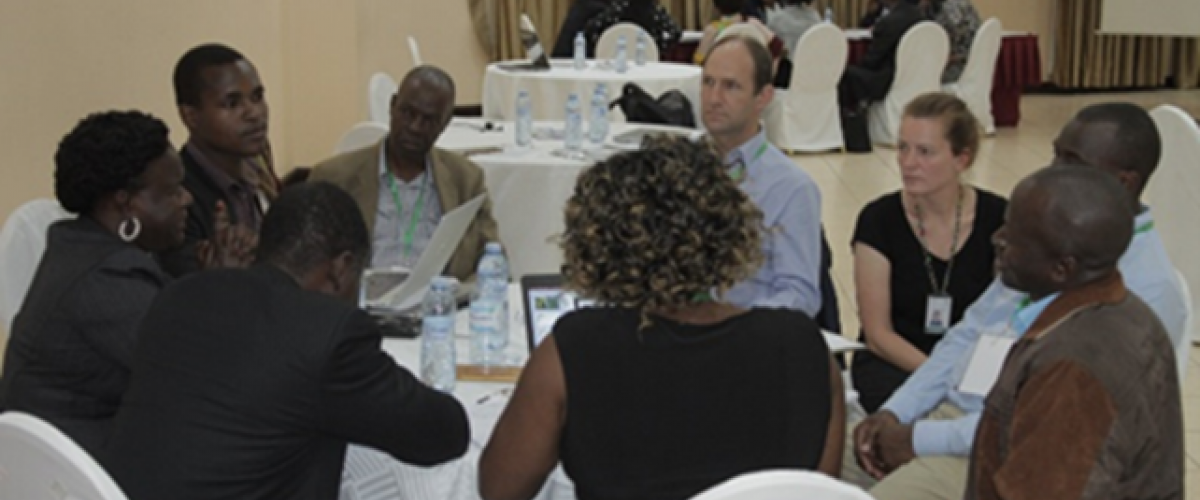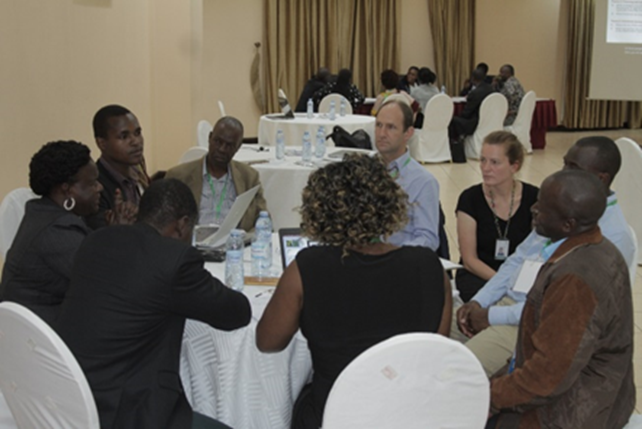
Mainstreaming of One Health activities into Uganda’s government structures up to the community level was a key proposal at a national stakeholders’ meeting convened by the Capacitation One Health in Eastern and South Africa (COHESA) project in April 2023. The workshop in Kampala also called for appropriate policy formulation to facilitate planning, budgeting and adoption to support implementation of One Health programs and activities.
Uganda is one of the hotspots for emerging and re-emerging pandemic threats in the east and central Africa region. Over the last decade, the country has experienced outbreaks of Ebola virus disease, Marburg haemorrhagic fever, Crimean-Congo haemorrhagic fever, yellow fever, pandemic influenza H1N1, avian influenza H5N8, anthrax and Rift Valley fever among other acute public health threats originating primarily from wild animals. These outbreaks resulted in illnesses, deaths, economic losses and disruption of communities beyond the areas of occurrence. Prevention, detection and response to these threats requires a coordinated approach and efforts across human health, animal health (livestock and wildlife) and the environment.
COHESA, which is led by the International Livestock Research Institute, was set up in 2022 to increase the relevance of One Health research and policies in eastern and southern Africa. The national stakeholder workshop was attended by representatives from government ministries, departments and agencies, academia, civil society and the media. It aimed to promote and ground One Health in Uganda through the COHESA project, review and validate the COHESA baseline assessments, as well as come up with recommendations for sustainable One Health development.
Theodore Knight Jones, COHESA’s principal investigator, highlighted the role of One Health in tackling complex environmental challenges: ‘COHESA targets One Health governance, which Uganda is doing; education to help people understand more about One Health, and One Health research, linking evidence to policy. We need to promote the collaboration between these components and bring all concerned stakeholders on board.’
In 2016, Uganda launched the National One Health Platform (NOHP), a multisectoral platform coordinated by the Ministry of Health; Ministry of Agriculture, Animal Industry and Fisheries; Ministry of Water and Environment and the Uganda Wildlife Authority. The NOHP aims to spearhead collaborative efforts among the four ministries and other partners to address the rising challenge of diseases that affect humans and animals. At the workshop, attendees called for the inclusion of other ministries, departments and agencies in the NOHP. Among the ministries proposed for inclusion were those of gender, labour and social development; local government; education and sports; finance, planning and economic development; public service; office of the prime minister delivery unit; as well as information and national guidance.
Clovince Kankya, the workshop convener and COHESA country lead for Uganda, noted that while some structures had been created to address One Health, more needed to be done: ‘There have been efforts towards multisectoral collaboration to address One Health challenges in Uganda. Unfortunately, during pandemic outbreaks, the different sectors continued to work independently, undermining the core tenets of One Health.’

Gerald Denouden from the Organization of African, Caribbean and Pacific States reiterated the need to understand how systems in Uganda work. He called for mapping to identify the stakeholders, their locations and their roles in addressing One Health challenges.
And Fred Monje, the One Health focal person at the Ministry of Agriculture, Animal Industry and Fisheries, commended COHESA for supporting One Health in Uganda: ‘One Health is divided into four areas, specifically collaboration, coordination, communication and capacity building. We are grateful for COHESA’s focus on capacity building, which is a crucial component of One Health.’